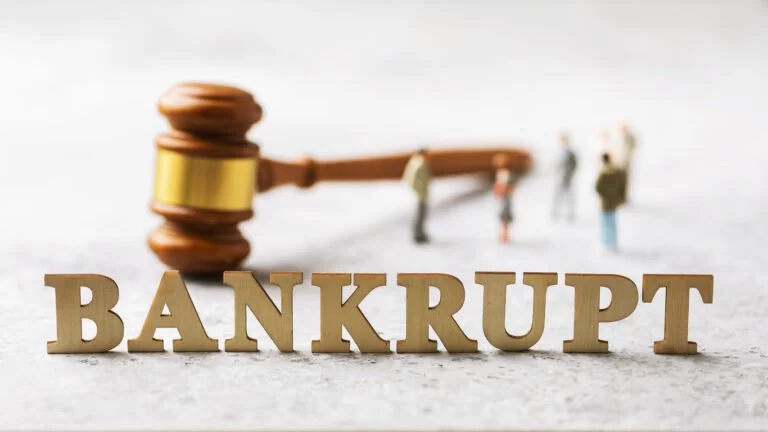
- understanding-bankruptcy-in-a-contractual-context - Understanding Bankruptcy in a Contractual Context
- how-bankruptcy-affects-executory-contracts - How Bankruptcy Affects Executory Contracts
- impact-on-suppliers-and-service-agreements - Impact on Suppliers and Service Agreements
- real-world-case-study-contractual-chaos-during-chapter-11 - Real-World Case Study: Contractual Chaos During Chapter 11
- negotiation-options-and-risk-mitigation-strategies - Negotiation Options and Risk Mitigation Strategies
- how-esplawyers-can-protect-your-contractual-interests - How ESPLawyers Can Protect Your Contractual Interests
1. Understanding Bankruptcy in a Contractual Context
Bankruptcy can radically alter how businesses handle their contractual obligations. When a company files for bankruptcy—be it Chapter 7 (liquidation) or Chapter 11 (reorganization)—existing business contracts may either be honored, modified, or terminated. This process significantly impacts vendors, partners, clients, and employees alike.
Many assume a contract is ironclad until its expiration, but under U.S. bankruptcy law, particularly sections 365 and 502 of the Bankruptcy Code, debtors can “reject” burdensome executory contracts to ease financial recovery or liquidation.
2. How Bankruptcy Affects Executory Contracts
2.1 What Is an Executory Contract?
An executory contract is one in which both parties still owe substantial performance. Common examples include ongoing service agreements, supplier contracts, and leases. When a business goes bankrupt, these agreements are put on hold and later either assumed (kept) or rejected (terminated) based on the debtor’s reorganization plan.
2.2 The Court’s Role in Contract Decisions
The bankruptcy court oversees whether continuing or rejecting a contract benefits the bankruptcy estate. While the debtor has leverage to reject contracts, the court ensures such rejection isn’t unfairly prejudicial to the counterparty.
3. Impact on Suppliers and Service Agreements
3.1 Disrupted Payment Schedules
Suppliers often suffer when a client declares bankruptcy. Payments may be delayed, reduced, or denied altogether—especially if the supplier holds an unsecured claim. If their contract is rejected, they may only receive cents on the dollar through the bankruptcy distribution plan.
3.2 Trust and Business Continuity Risks
Bankruptcy sends ripple effects through supply chains. A key supplier filing for bankruptcy could stall operations for others. Businesses should have contingency clauses and backup plans to minimize disruption, especially in industries dependent on just-in-time logistics.
4. Real-World Case Study: Contractual Chaos During Chapter 11
Consider the bankruptcy filing of retailer J.C. Penney in 2020. The company rejected numerous leases and vendor contracts. Suppliers like XYZ Textiles saw their long-term contracts abruptly cut off. As a result, XYZ was forced to write off significant inventory costs and restructure its own debt just to survive.
This chain reaction highlights how a single bankruptcy filing can send contractual and financial shockwaves across multiple industries.
5. Negotiation Options and Risk Mitigation Strategies
5.1 Pre-Bankruptcy Protective Clauses
To safeguard against bankruptcy-related disruptions, companies should negotiate contracts with bankruptcy clauses, including clear termination triggers and reassignment rights. Preference clauses and adequate assurance clauses can also help mitigate financial losses.
5.2 Post-Filing Negotiations
If you’re a creditor or counterparty to a bankrupt entity, legal counsel can assist in negotiating “critical vendor” status or restructuring terms to maintain some value from the relationship. Courts may approve these arrangements if they align with the overall reorganization plan.
6. How ESPLawyers Can Protect Your Contractual Interests
At ESPLawyers, we provide tailored legal strategies to help businesses understand the full impact of bankruptcy on contracts. Whether you’re filing for protection or facing the fallout of a partner’s bankruptcy, we guide you through the complexities—ensuring you make informed decisions to preserve your contractual rights.
From contract audits and litigation support to court representation, our attorneys work relentlessly to protect your assets and reduce exposure to unnecessary risk. Reach out to us if you’re navigating business uncertainty due to bankruptcy—we’re here to help safeguard what you’ve built.








